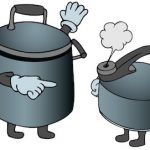Who here would voluntarily pay more income tax? Anyone? Now be careful and think hard here, after all taxes help support so many aspects of society (roads, schools, welfare, defense, science, economic expansion, etc.) that benefit everyone wouldn’t it be selfish to not do all you could do? Sure the government says you can deduct your mortgage interest, property taxes, and other expenses, but should you? Wouldn’t it be more patriotic to forgo those deductions so that you can more fully participate in the community of this great nation?
If this sounds both familiar and ridiculous at the same time there is a reason for that. The whole message of taking part in the common good of taxation is directly from the statist’s propaganda playbook. The ploy is to guilt you into compliance: if you are opposed to taxation you must also be against all those things taxes fund, right? So while we are instinctively “for” the things taxes fund, we each individually endeavor to keep our share of that obligation to a minimum. A tragedy of the commons in which we extract from the tax pot as much as we can (concentrated benefits of special interests) while limiting what we put in that pot. This tragedy of the commons is nowhere more apparent than in the hypocrisy of ideologues like Clinton who claim the “wealthy” aren’t paying their “fair share” all the while she and her ilk are none to happy to take advantage for themselves every wrinkle in the tax code that allows them to limit their tax liability. Pot, meet kettle.
People who complain about the tax code don’t have any actual experience with it beyond filing their 1040. I do (unfortunately) as a business owner and I can guarantee you there is no secret “check this box to get out of paying taxes this year” box on any of the forms. If the current rumors are true that Trump has not paid taxes for the last 20 years it’s not because he’s some sort of clever businessman or has really great tax accountants. There is one simple reason. He lost a whole lot of money! It is after all called an “income tax.” You must have income in order to tax it. If you lose money in one year and make money in the next you are allowed to offset the profit with the prior loss. If that seems unfair to you then I suspect you’d find nothing wrong with gambling following rules of “heads I win, tails you lose.”
That Trump has apparently carried this loss forward 20 years makes his hesitancy to release his returns all the more understandable. He is tremendously embarrassed by the fact that he hasn’t made any money in over 20 years. In other words, imagine if you had invested $100,000 in the stock market in 1995 but it quickly declined in value to $20,000. Now 20 years later it was again $100,000. Have you made any money?
If it somehow seems unfair to you that people not making any money don’t have to pay “invest in the system” then perhaps it is time to abolish the income tax and shift toward a voluntary user-pays system. Those that consume more will pay more and those that consume less will pay less. You know, like every other good on the open market.

